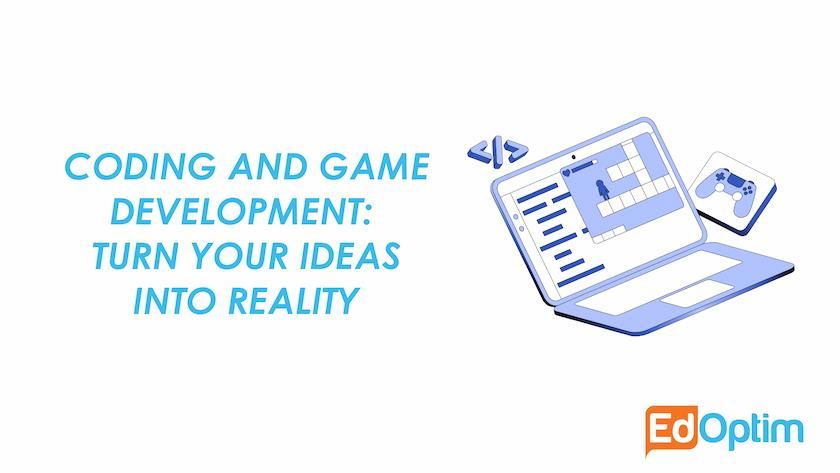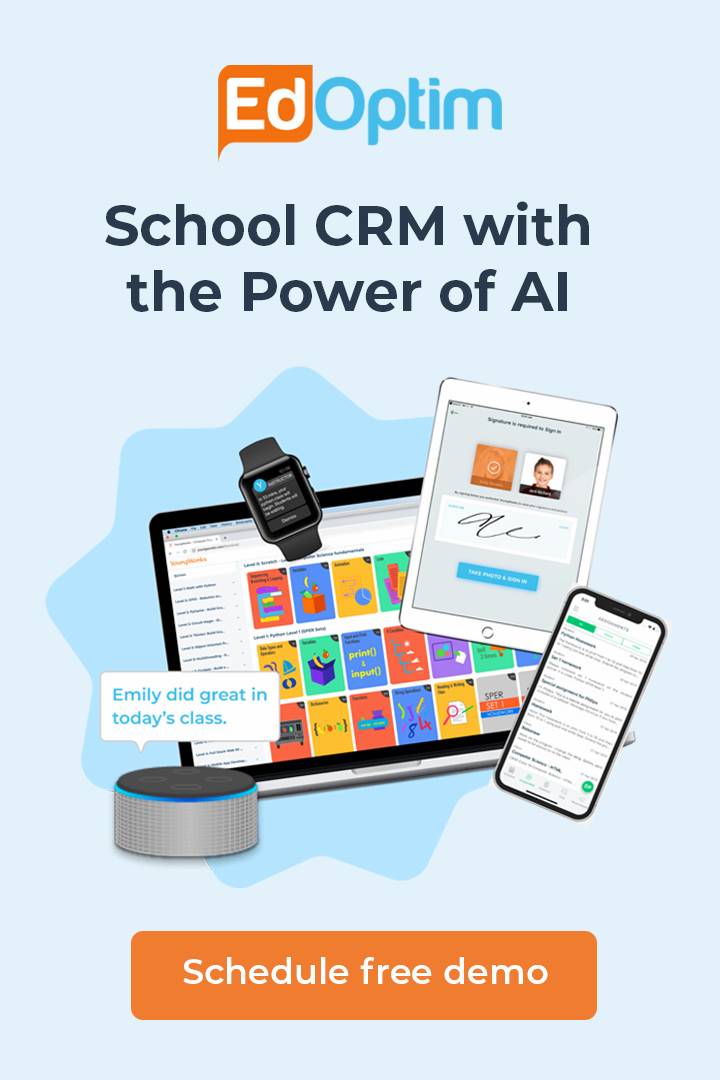Sep 09, 2024 By Team EdOptim *
How to turn a game idea into reality?
- Define your game concept: start by writing down your game ideas, including the genre, key gameplay mechanics, and the overall vision of your game.
- create a game design document (gdd): this document outlines your game mechanics, story, characters, and level designs. A well-crafted gdd serves as a blueprint for your game development process.
- Choose the right game engine: popular game engines like unity3d and unreal engine provide the functionality and tools needed for beginners to create games, even with little programming knowledge.
- Learn programming languages: languages like python and javascript are widely used in game development, particularly for scripting game mechanics and user interactions.
- Start small: begin with a basic prototype or a small project that tests your game mechanics before moving on to a more complex build.
- Iterate and improve: game development is an iterative process. Continuously playtest your game, gather feedback from forums and gamers, and make improvements to enhance user experience.
How do you turn an idea into reality?
- Conceptualize your idea: this is the brainstorming phase, where you let your imagination run wild. Think about the gameplay, storyline, characters, and unique elements that will set your game apart.
- Prototype: a prototype is a rough version of your game that demonstrates the core mechanics. This step is crucial in identifying what works and what needs to be improved.
- Design and develop: use game engines like unity3d or unreal engine to start building your game. This involves coding, designing levels, creating art assets, and scripting interactions.
- Playtest: playtesting allows you to see how real gamers interact with your game. It helps in refining gameplay mechanics and ensuring the game provides the desired experience.
- Launch and iterate: after launching your game, continue to gather feedback and make updates. The best games are constantly evolving with player input.
What is the difference between coding and game development?
- Coding: this is the process of writing the actual code that makes a game function. It involves using programming languages like python, javascript, or c# to create algorithms and logic that drive gameplay.
- Game development: this is the broader process that includes coding, but also encompasses game design, art creation, sound design, testing, and marketing. It’s a multidisciplinary field that combines creativity with technical skills.
- Game design vs. Development: game design focuses on creating the concepts, mechanics, and user experience, while game development is the technical implementation of those ideas using software development tools and game engines.
How do game developers get ideas?
- Personal experiences and interests: many game ideas come from the developer’s own experiences, favorite games, movies, or books.
- Community feedback and trends: forums, gamer feedback, and industry trends often inspire developers to create sequels or new games that cater to current demands.
- Game jams and competitions: these events encourage developers to experiment with new ideas and prototype games in a short time, fostering creativity.
- Existing games: developers often draw inspiration from other video games, iterating on mechanics or genres to create something unique.
What steps are involved in turning a game idea into a fully developed game?
- Research and planning: understanding your target audience and researching similar games will help refine your game concept.
- Select a game engine: choosing between engines like unity3d or unreal engine depends on your game’s needs and your familiarity with the platform.
- Learn game design principles: understanding game mechanics, user experience, and player engagement are key to creating a fun and playable game.
- Develop your skill set: learn the basics of coding, user interface design, and 3d modeling. There are countless tutorials and resources available to help beginners get started.
- Build and test: create your first game prototype, test it with real users, and use the feedback to improve your game.
How do you start developing a game if you have an idea but no coding experience?
- Use visual scripting tools: many game engines offer visual scripting tools that allow you to create gameplay mechanics without writing code. Unity3d’s bolt and unreal engine’s blueprints are great examples.
- Start with beginner-friendly tutorials: platforms like youtube, udemy, and codecademy offer tutorials specifically designed for those new to coding and game development.
- Leverage game templates: templates provide a foundation for building your game, helping you understand the development process while customizing your game’s elements.
- Collaborate with programmers: if coding isn’t your strength, consider partnering with a programmer who can handle the technical aspects while you focus on game design and storytelling.
Are there developers out there who are looking for in-depth game designs and are willing to buy these ideas?
- Submit your concepts to game studios: while rare, some game studios do consider external game design submissions, especially if you have a detailed and compelling game design document (gdd).
- Pitch your game idea: attend game development conferences, join online forums, or use platforms like indiedb to showcase your game ideas to potential investors and developers.
- Develop a prototype: a working prototype is more valuable than an idea alone. It demonstrates the feasibility of your concept and can attract attention from developers and publishers.
What is custom game development?
- Tailored experiences: custom game development focuses on creating games specifically tailored to a client’s needs, such as educational games, simulations, or branded experiences.
- Collaboration with clients: developers work closely with clients to understand their vision and create a game that meets specific goals, whether for training, marketing, or entertainment.
- Unique functionality: custom games often feature specialized gameplay mechanics or storylines that align with the client’s objectives, unlike traditional games designed for mass audiences.
How can i submit a video game idea to developers?
- Create a detailed gdd: a game design document is essential when pitching your idea, as it provides a clear and structured overview of your game’s mechanics, storyline, and target audience.
- Build a basic prototype: even a simple prototype can help convey your idea more effectively than words alone.
- Network with developers: attend industry events, join gamedev forums, and connect with developers on platforms like linkedin to pitch your ideas.
- Seek publishers or indie game funds: some publishers and indie funding platforms actively seek new game ideas to support, especially if your concept shows commercial potential.
Conclusion: turning your game ideas into reality
Creating your own game, whether it’s your first game or a new entry into the industry, is an exciting journey that combines creativity, technical skills, and hard work. By understanding the basics of game development, leveraging the right tools, and constantly iterating on your ideas, you can bring your game concepts to life. The gaming industry offers countless opportunities for aspiring developers, from casual board games to complex video games.
As you dive into the world of game development, take time to read and understand key terms related to coding, design, and app development. Whether you’re starting with simple projects or working toward creating your dream game, every step in learning and experimenting brings you closer to turning your ideas into reality.
Whether you’re using unity3d, unreal engine, or other game engines, remember that the key to success is persistence, learning, and a passion for creating unforgettable gaming experiences. Good luck on your game development journey!
EdOptim is a Student Information System (SIS), Learning Management System (LMS), and parent engagement featured software with cutting-edge AI capabilities. These AI features cover everything from creating lesson plans and generating homework assignments to simplifying homework reviews and providing chatbot support for students, staff, and parents with extensive and flexible features for all your needs. , Schedule a demo
*Contributors: Written by Prasanna MG; Edited by Alisha Ahmed; Lead image by Shivendra Singh

